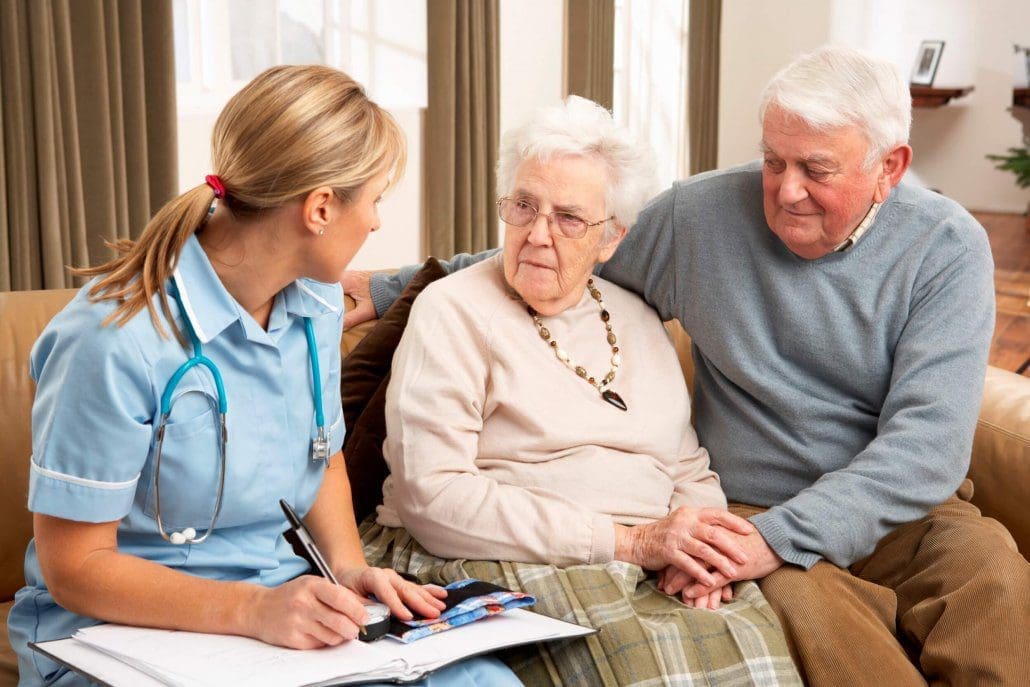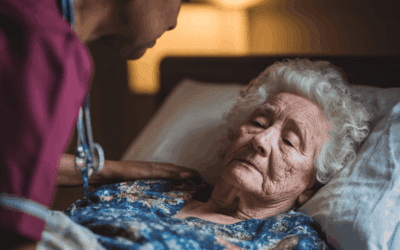The decision to sue for elder abuse is a serious one, but it’s often necessary. The abuse of nursing home residents is a sad reality: United States nursing homes and long-term care facilities house over 3.2 million residents. Over 44% of residents admitted to experiencing elder abuse in nursing homes.
After finding out a loved one has been subject to nursing home abuse, it can be difficult to decide whether or not to contact an attorney. There may be concerns about legal fees, retaliation, or the loss of time and energy at a time of stress for you and your family. Caring for your loved one or feelings of mourning (after a fatality) may outweigh the thought of filing a lawsuit.
You should remember, however, that if your loved one suffers harm because of negligence and you do nothing, it is likely that a similar situation will occur to other residents as well. Taking action against nursing homes or assisted living facilities is an act of social activism, protecting the welfare of current and future elderly people living there.
In addition, it can provide much-needed financial assistance to individuals and their families after neglect or abuse causes injury, illness, or exacerbates a disability. Once you have determined that your loved one may have been mistreated in a nursing home, here are some questions or considerations to get started.

How to Sue for Elder Abuse in Nursing Homes
It is difficult to determine when there are grounds for a civil lawsuit in nursing homes because accidents can happen. Elderly care facilities are only liable for residents’ injuries if negligence or abuse can be proven. Florida’s standard of care helps determine what constitutes “negligence.”
The nursing facility staff may consciously harm a resident, and when they fail to provide the appropriate level of care, those patients may suffer, as well. Some common examples of medical neglect in nursing homes include:
- Infection control protocols are not followed, which puts residents at risk of life-threatening infections.
- The resident is not provided with the required physical therapy.
- Insufficient accessibility equipment, such as wheelchairs and canes.
- Failure to provide a resident with required medications, such as not following dosage instructions, or not providing the medication at the correct time, etc.
- The Resident’s basic needs, such as food and water, are neglected.
- Residents are not provided with a safe and clean environment.
- Not providing residents adequate hygienic tools such as toothbrushes, clean laundry, and bathing assistance.
- Leaving residents isolated, ignoring, yelling at, or intimidating them can result in social and emotional trauma.
Elder abuse in nursing homes can be hard to detect. A resident’s family should be vigilant when watching the nursing home environment since staff might force residents to remain silent. According to a study published in the National Center for Biotechnology Information, only one out of every fourteen cases of elder abuse is reported. If you suspect abuse, it’s important to know your rights and how to sue for elder abuse to protect your loved one and seek justice.
How Do You Know Nursing Home Negligence Or Abuse Is Happening?
The discovery or suspicion of elder abuse in nursing homes is distressing. In some cases, families will receive reports of abuse or neglect from their loved ones during hospital visits. Other people may also indicate signs of wrongdoing when they visit their family members. You may learn about widespread abuse or neglect at a facility where your relative lives through media reports.
Second, if it is clear that an injury or harm has occurred, it is important to take action. It may be necessary to obtain legal counsel to sue for elder abuse, have the contract canceled, and mitigate financial losses. Regardless of how you learn about negligence and abuse, it’s important to preserve all evidence, including signs, that may be useful for a compensation claim. Photos, videos, transcribed testimony of the injured resident or eyewitnesses, and doctors’ reports can be used as evidence when you decide to sue for elder abuse.
What Are The Signs Elder Abuse In Nursing Homes?
The most obvious signs of physical abuse include unexplained bruises, cuts, sores, scratches, broken bones, malnutrition, falls, and other physical injuries. Finding out when emotional abuse is occurring can be more challenging than detecting physical abuse, but it can still be just as harmful to your loved one and cause physical illness.
Your loved one has likely experienced emotional abuse if their weight has suddenly dropped, they have refused to speak when staff members are present, they have changed their behavior unexplainably, or they seem emotionally withdrawn or uncommunicative. Symptoms of sexual abuse in nursing homes can include both physical and behavioral signs, such as a new onset of sexually transmitted diseases, difficulty walking or sitting, bruises or bleeding near sexual areas, social withdrawal, agitation, inappropriate or unusual behavior, panic attacks, and attempted suicide.
If financial abuse has occurred, there are no blatant warning signs, which is why those who have elderly loved ones in nursing homes need to monitor accounts and cards for any unusual activity such as abrupt checks, duplicate names on the cards, unexplained withdrawals, and the disappearance of personal property. Other signs of negligence are regular dehydration, infection, bed sores, poor hygiene, unsanitary living conditions, lack of mobility, and unexplained injuries.
What Rights Does Someone Living In A Nursing Home Have?
In 1987, the Nursing Home Reform Act (NHRA) was passed after an Institute of Medicine study found that nursing home residents were being abused and neglected. As a result of this act, all residents of nursing homes and adult care facilities were given the following rights:
- The right to be protected from abuse, mistreatment, and neglect.
- The right to be free from physical restraints.
- Right to privacy.
- The right to accommodations for medical, physical, psychological, and social needs.
- The right to associate with residents and family groups.
- A right to dignity.
- Rights to self-determination (choice of a doctor, access to medical information, etc.).
- The right to freely communicate.
- It is one’s right to participate in reviewing care plans and to be informed in advance about any change in treatment in the facility.
- The right to voice grievances without fear of reprisal or discrimination.
Also, Florida state law (Florida Statute 415 Adult Protective Services) directs that anyone aware of any form of abuse, neglect, or exploitation of an elderly person should immediately report it to the appropriate authorities. You should speak with an attorney if you believe any of these rights have been violated. Florida nursing home abuse lawsuits can take a long time to file, so be sure to get help from an experienced personal injury or medical malpractice attorney who can guide you through this legal process and help you sue for elder abuse if necessary.
How To Report Nursing Home Abuse.
It is possible to resolve the issue with inadequate care by speaking to the staff or supervisor. If that does not work, the options below may be used:
Follow the Grievance Procedure
Nursing homes with Medicare or Medicaid certification must have a grievance procedure to handle complaints. Nursing homes should follow the grievance procedure to resolve issues with residents and loved ones.
Contact Long-Term Care Ombudsman
A long-term care ombudsman represents nursing home residents. In neglect cases, they can perform in-person investigations of nursing homes, resolve complaints, and assist caregivers and victims.
Contact Adult Protective Services
Families can report any issues to their local APS agency, which will investigate the suspicion of neglect. If APS determines that neglect is happening, an agent will meet with the victims to decide the best way to defend them.
Contact the Local Police
When nursing home neglect threatens the health or life of a resident, family members may need to contact the police. In addition to removing the resident from the dangerous situation and finding a safe place for them, officers can also investigate the incident and record it.
Consult an Experienced Attorney
Lawyers with experience in nursing home abuse can advise loved ones on how to handle the situation and help them report neglect. Lawyers can assist clients in filing lawsuits to sue for elder abuse and obtaining financial compensation for medical expenses and other costs.
What Evidence Do You Need to Sue for Elder Abuse?
A strong elder abuse case rests on documentation. Courts don’t just accept accusations. If you plan to sue for elder abuse, gather medical records, internal facility reports, and any personal items that indicate mistreatment. Take dated photographs of injuries or poor living conditions. Write down everything your loved one says about their treatment, and note changes in behavior or mood. You can also collect financial records if you suspect exploitation.

Witness testimony helps, too. That can include family members, other residents, or even former staff who are willing to speak up. Don’t underestimate the power of consistent records—if you’ve documented multiple reports made to the nursing home that were ignored, those can support your claim. A personal injury attorney can also help subpoena internal documents to strengthen your case.
What Happens After You File a Lawsuit for Elder Abuse?
If you decide to sue for elder abuse, the process begins with a legal complaint filed against the nursing home or staff. This document outlines the abuse, the damages caused, and what compensation you’re seeking. Once filed, the facility will be served and will either respond through their legal team or try to negotiate early.
Your case enters the discovery phase, where both sides exchange evidence. This may include medical records, care logs, or security footage. Depositions follow, where witnesses testify under oath. At any point, the nursing home may offer a settlement to avoid going to court. But if no agreement is reached, your case proceeds to trial.
How Much Can You Win When You Sue for Elder Abuse?
The compensation in elder abuse cases can vary widely. Factors include the severity of the injury, how long the abuse lasted, and the financial impact on your loved one. If the case involves permanent disability or wrongful death, the potential payout increases significantly.
Families who sue for elder abuse may recover money for emergency care, relocation costs, emotional distress, funeral expenses, and lost income (if family members missed work to care for the victim). Sometimes, the court may also award punitive damages to send a clear message to the facility. A qualified elder abuse attorney can help you calculate a fair and realistic settlement based on your situation.
Can You Sue Even if There Was No Physical Injury?
Yes. Physical harm is just one type of elder abuse. Emotional abuse, isolation, verbal threats, and financial exploitation also qualify under Florida law. If your loved one has become withdrawn, fearful, or panicked in staff presence, or if money has mysteriously vanished from their account, you may still be able to sue for elder abuse.
Even if the signs aren’t as visible as bruises or broken bones, emotional trauma can deeply affect seniors. Some lose their appetite, stop speaking, or show signs of depression. The courts recognize that abuse isn’t always physical and will consider mental and financial harm when determining compensation.
How Long Do You Have to Sue for Elder Abuse in Florida?
Florida law generally gives families two years to file a lawsuit for elder abuse from the date the harm was discovered. However, if there was a delay in uncovering the abuse, for example, the victim couldn’t speak or records were hidden, you may have additional time.
Waiting too long can result in a dismissed case, so act quickly once you suspect wrongdoing. An elder abuse attorney will help confirm your timeline and file your complaint before the deadline. Don’t wait until you’ve collected all the evidence; a good lawyer can help. The sooner you start, the stronger your position to sue for elder abuse.
Why Filing a Lawsuit Matters Beyond Compensation?
When families speak up, it sends a message to the facility and the broader system. A successful lawsuit holds nursing homes accountable and can help force better staffing, training, and oversight. Your decision to sue for elder abuse may prevent harm to others and push facilities to correct dangerous policies or negligent hiring practices.
Elder abuse cases often bring attention to the broader issue of systemic neglect. By taking legal action, you’re helping shed light on what’s happening inside long-term care homes. And while the goal is justice for your loved one, the ripple effects can reach far beyond your family.
Contact A Nursing Home Abuse Lawyer Today
If you suspect your elderly loved one is being abused in a nursing home facility or suffered a wrongful death due to negligence, call Calandro Law of Riverview, Florida. You will be connected to one of our personal injury attorneys, who will guide you through the following steps to sue for elder abuse and get the justice and compensation your family deserves.
Schedule a free consultation today by calling us at (813) 563-6463 or filling out the form on the right side of the page.



